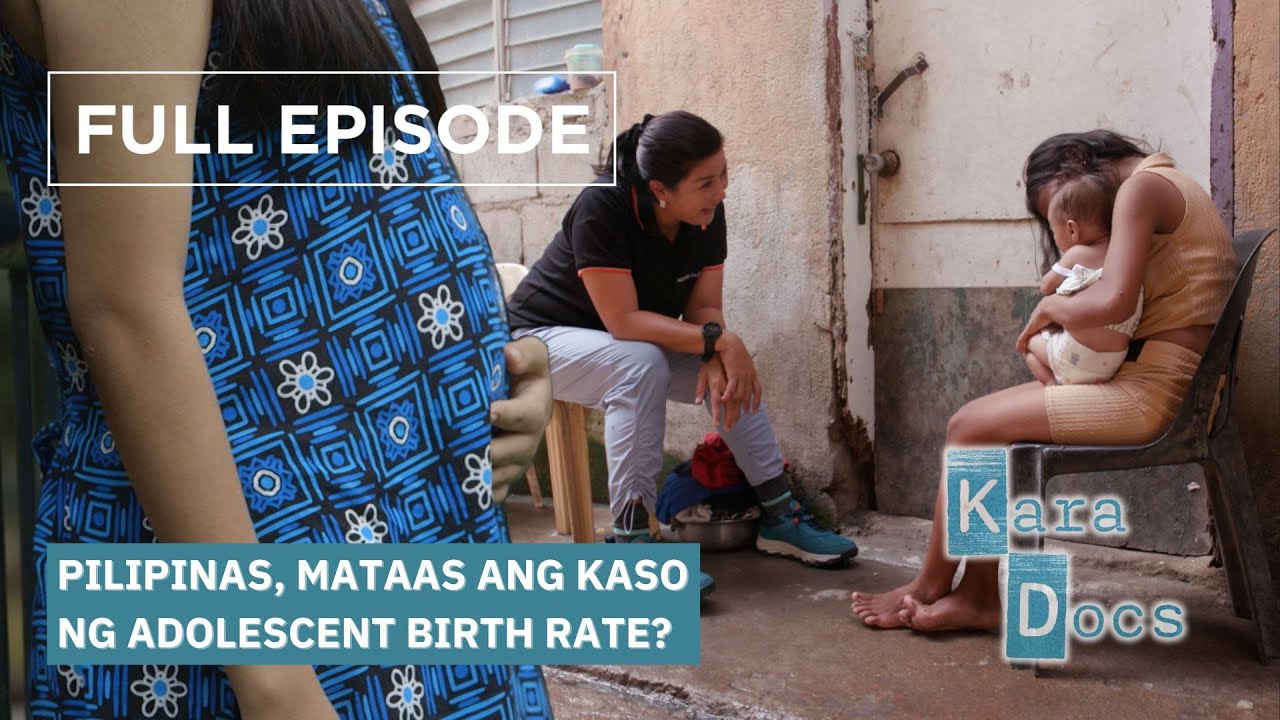Gravidez na adolescência | Representativas - 2021 (com audiodescrição)
Summary
TLDRThe transcript highlights the complex issue of adolescent pregnancy, emphasizing the challenges faced by young mothers, including lack of education, financial instability, and emotional immaturity. It discusses the lack of awareness and access to sexual health resources, the stigma surrounding teenage pregnancy, and the impact on families and society. Insights from healthcare professionals, politicians, and affected individuals underline the importance of prevention programs, better education, and family support to address this ongoing issue and reduce the risks of early pregnancies and related health complications.
Takeaways
- 😀 Teenage pregnancy is a significant issue in Brazil, with over half a million adolescent births annually.
- 😀 Many adolescents lack awareness about the emotional, physical, and financial challenges of early motherhood.
- 😀 Young mothers face increased health risks, including preeclampsia, HPV, and other complications during childbirth.
- 😀 There's a severe gap in sexual education, particularly among adolescents from low socio-economic backgrounds.
- 😀 Adolescents often become pregnant due to a lack of information on contraception and sexual health.
- 😀 Many young mothers experience social stigma and isolation, making it difficult to return to school or find employment.
- 😀 The emotional maturity of adolescents is often insufficient to handle the responsibilities of motherhood.
- 😀 There's a lack of family and community support for young mothers, exacerbating their challenges in raising children.
- 😀 Improved sexual education and better access to contraception could prevent a significant number of teenage pregnancies.
- 😀 Public health campaigns and education programs targeting young people are essential for reducing teenage pregnancies and raising awareness about the risks of early sexual activity.
- 😀 Policymakers are advocating for prevention programs in schools and communities to reduce the incidence of adolescent pregnancies and improve support systems for young mothers.
Q & A
What are the main consequences of teenage pregnancy discussed in the transcript?
-The transcript highlights several significant consequences of teenage pregnancy, including emotional and financial challenges, limited educational and career opportunities, and the strain on family dynamics. Teen mothers often face hardships such as poverty, social stigma, and inadequate support systems.
How does the lack of sexual education contribute to teenage pregnancy?
-The lack of proper sexual education, especially in low-income communities, leads to a lack of awareness about contraception, sexual health, and the responsibilities associated with pregnancy. This ignorance increases the risk of unplanned pregnancies among adolescents.
What role do schools play in preventing teenage pregnancy?
-Schools are critical in providing sexual education and raising awareness about the risks of early pregnancies. However, the transcript suggests that many schools fail to effectively address these issues, and there is a need for more comprehensive education programs that cover contraception and the realities of parenthood.
What challenges do adolescent mothers face regarding healthcare?
-Adolescent mothers often delay seeking medical consultations, typically not visiting a doctor until the fifth or sixth month of pregnancy. This delay can result in complications like pre-eclampsia or undiagnosed health issues, which could have been prevented with earlier care and education.
How does family support impact teenage mothers according to the transcript?
-Family support is vital but often lacking, with many young mothers facing rejection or shame from their families. The lack of understanding and emotional support from parents can exacerbate the challenges faced by adolescent mothers, making it harder for them to cope with their responsibilities.
Why is it important for both boys and girls to have comprehensive sexual education?
-It is essential for both boys and girls to receive comprehensive sexual education so they can make informed decisions about their sexual health, understand the risks of early pregnancies, and be aware of the methods available to prevent unintended pregnancies and sexually transmitted infections (STIs).
What are the financial challenges that adolescent mothers face?
-Adolescent mothers often struggle with financial difficulties because they are unprepared for the costs associated with raising a child. This includes the cost of basic necessities such as food, clothing, and healthcare, which can lead to additional stress and strain on the family’s resources.
How can government policies help in preventing teenage pregnancy?
-Government policies can help by implementing programs that offer sexual education in schools, providing better access to contraceptive methods, and ensuring healthcare services are accessible. Policies that focus on preventing teenage pregnancies and providing support for young mothers are essential for reducing the social and economic impact of early parenthood.
What is the significance of the role of men in preventing teenage pregnancy?
-The role of men is crucial in preventing teenage pregnancy. Boys and young men should be educated about contraception, sexual responsibility, and the shared responsibilities of parenting. Men need to be actively involved in preventing pregnancies by taking responsibility for their actions and supporting their partners.
How does societal stigma affect young mothers and their future prospects?
-Societal stigma often places undue pressure on young mothers, making them feel judged or isolated. This stigma can lead to emotional and psychological challenges, affecting their self-esteem and future opportunities, including education, career, and social acceptance. It also exacerbates the difficulties they face in raising their children and balancing responsibilities.
Outlines

This section is available to paid users only. Please upgrade to access this part.
Upgrade NowMindmap

This section is available to paid users only. Please upgrade to access this part.
Upgrade NowKeywords

This section is available to paid users only. Please upgrade to access this part.
Upgrade NowHighlights

This section is available to paid users only. Please upgrade to access this part.
Upgrade NowTranscripts

This section is available to paid users only. Please upgrade to access this part.
Upgrade NowBrowse More Related Video

Pilipinas, mataas ang kaso ng adolescent birth rate? — Menor de Ina (Full episode) | Kara Docs

I-Witness: 'Kabuwanan ni Nene,' dokumentaryo ni Sandra Aguinaldo (full episode)

Teenage Pregnancy Prevention

Panel Discussion: Teenage Pregnancy by MVA AM 1

Untitled

Pernikahan Dini, Antara Kesulitan Ekonomi dan Tradisi
5.0 / 5 (0 votes)